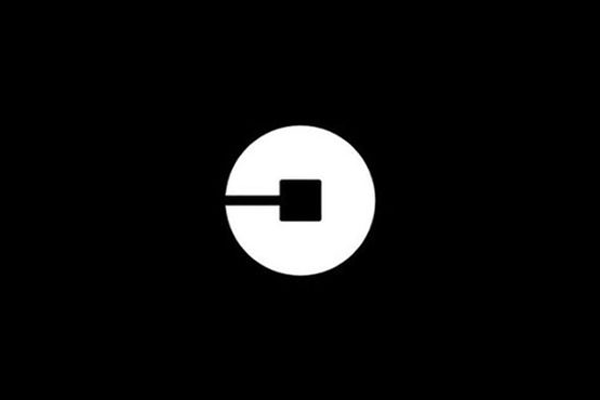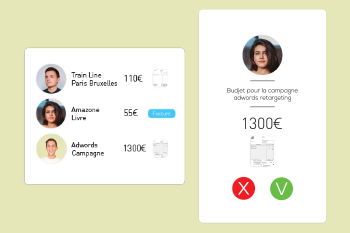Depuis janvier 2015 et la loi de financement de la Sécurité Sociale, le micro entrepreneur doit ouvrir un compte bancaire dédié à son activité, quand bien même elle soit secondaire. Cette mesure a été prise pour éviter les confusions entre les rentrées d’argent professionnelles et les revenus personnels. Elle a pour but également de limiter les fraudes à la déclaration des revenus. Pour les micro entrepreneurs, l’ouverture de ce compte implique certaines obligations et certains choix.

Compte bancaire d’une micro entreprise : les obligations
À partir du moment où vous débutez une activité sous le statut de micro entreprise, vous devez posséder un compte micro entrepreneur. Depuis l’entrée en vigueur en 2017 de la loi Sapin 2, vous disposez d’1 an à compter de la création de la micro entreprise pour ouvrir un compte bancaire.
Vous n’êtes pas dans l’obligation d’opter pour l’ouverture d’un compte pro. En effet, l’obligation porte sur la possession d’un compte dédié. Il peut tout à fait s’agir d’un compte personnel, souvent moins coûteux. Sachez toutefois que pour une EIRL (Entreprise Individuelle à Responsabilité Limitée), même ayant opté pour le régime micro social, l’ouverture d’un compte professionnel auto entrepreneur est obligatoire.
Si vous avez ouvert une micro entreprise mixte, c’est à dire avec plusieurs activités différentes qui n’entrent pas dans les mêmes catégories, un seul compte suffit. En cas de contrôle, vous devrez justifier les revenus et dépenses de vos activités. Il est préférable de les gérer depuis un compte unique.
Les atouts du compte dédié à son activité professionnelle
S’il s’agit à l’origine d’une obligation légale, l’ouverture d’un compte bancaire dédié, qu’il soit professionnel ou personnel, détient des atouts non négligeables.
Il permet de clarifier les transactions et donc de simplifier la tenue de la comptabilité. En effet, même si le micro entrepreneur bénéficie d’un régime simplifié, il demeure soumis à l’obligation de tenir une comptabilité, même si celle-ci tient dans un cahier ou sur un tableau ne comportant que les recettes et les dépenses. Il doit également conserver tous les justificatifs relatifs aux mouvements de trésorerie. Ainsi, utiliser son compte personnel pour les transactions professionnelles implique de pouvoir justifier toutes les rentrées et sorties du compte, même personnelles. Cela complique grandement la tâche en cas de contrôle par l’URSSAF.
D’autre part, posséder un compte dédié représente un gain de temps lorsque vous devez vérifier le paiement d’une facture ou rechercher une opération.
Pourquoi choisir un compte pro plutôt qu’un compte perso pour sa micro entreprise ?
La tenue d’un compte professionnel est, certes, généralement plus chère que celle d’un compte personnel. Néanmoins, ouvrir un compte pro représente des avantages considérables qui peuvent réellement impacter la vie de votre entreprise.
Cela vous permet de bénéficier de services dédiés aux professionnels :
- Une carte bancaire avec un plafond de paiement plus haut.
- Des virements moins coûteux.
- La possibilité d’obtenir un terminal de paiement par carte bancaire et de mettre en place des moyens de paiement sur votre site internet.
- Facturer des clients à distance en envoyant un SMS contant un lien de paiement.
Vous profitez également d’un suivi plus approprié ainsi que d’offres adaptées à la gestion d’une entreprise. Si vous débutez une activité, le statut de micro entreprise est peut-être le plus simple et le plus adapté. Cependant, si vous souhaitez en faire votre activité principale et la développer, les plafonds de chiffre d’affaires ne vous suffiront peut-être plus à court ou moyen terme. À ce titre, lorsque vous souhaiterez modifier le statut de votre entreprise, un compte professionnel deviendra obligatoire. Opter pour un compte pro pour votre micro entreprise est donc une solution idéale pour ne pas rencontrer cette problématique.
Banque traditionnelle ou compte pro en ligne ?
Pour ouvrir un compte bancaire professionnel, vous pouvez passer par une banque pro traditionnelle, une banque en ligne ou un établissement de paiement en ligne.
Opter pour un établissement de paiement comme Anytime est une solution à la fois complète et peu coûteuse. Cela vous permet d’ouvrir un compte pro et de bénéficier des services associés tout en profitant de frais restreints. D’autre part, Anytime propose des solutions innovantes qui facilitent la gestion au quotidien de votre trésorerie. Disponibles sous la forme d’application mobile et d'une interface de gestion sur ordinateur, l'établissement de paiement fait preuve d’une grande flexibilité.
Les banques traditionnelles vous permettent certes d’avoir un conseiller attitré avec lequel vous pouvez prendre rendez-vous quand vous le souhaitez, même s’il n’est pas toujours évident d’obtenir un rendez-vous rapidement. Les comptes pro en ligne, à l’inverse, ne proposent pas de relation avec un conseiller attitré, mais disposent d’un service client réactif capable de répondre dans des délais très courts à toutes vos interrogations. L’ouverture d’un compte professionnel y est très rapide et 100 % digitale.
Si votre activité nécessite de déposer régulièrement des espèces ou des chèques, et que le délai de traitement doit être rapide, ouvrir un compte pro en ligne ne sera peut-être pas la solution la plus adaptée. En revanche, si vous souhaitez être payé régulièrement par virement et carte bancaire, ou mettre en place une boutique en ligne avec un module de paiement, un établissement de paiement en ligne vous proposera des solutions parfaitement adaptées pour un tarif bien plus attractif.
L’ouverture d’un compte micro entrepreneur est une obligation, mais aussi un confort, d’autant plus en choisissant d’ouvrir un compte professionnel en ligne. Vous profiterez de services et de tarifs parfaitement adaptés à une micro entreprise.








